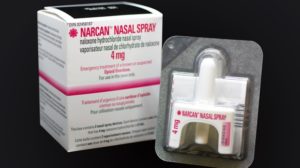
In May of 2020, the Substance Abuse and Mental Health Services Administration (SAMHSA) released a Treatment Improvement Protocol (TIP) document titled, TIP 63: Medications for Opioid Use Disorder. [1] According to SAMHSA, the document “reviews the use of the three Food and Drug Administration (FDA)-approved medications used to treat OUD (Opioid Use Disorder)—methadone, naltrexone, and buprenorphine—and the other strategies and services needed to support recovery for people with OUD.”
According to the publication, Opioid Use Disorders involving opioid painkillers and heroin impacted the lives of 2 million people age 12 and older in the United States and caused the death of 46,8000 individuals in 2018. Other facts related to OUD included in the publication include:
- Opioid-related inpatient hospital stays increased 117% nationally from 2005-2016.
- The estimated cost of the opioid epidemic was $504 billion in 2015.
- Opioid addiction is linked to high rates of illegal activity and incarceration.
Led by Robert P. Schwartz, M.D., the Medical Director/Senior Research Scientist at the Friends Research Institute in Baltimore, MD, the publication was created by a panel of “addiction-focused clinical, research, administrative, and recovery support experts” who named 13 key messages of the publication, including:
- Addiction is a chronic, treatable illness.
- Patient-centered care empowers patients with information that helps them make better treatment decisions with the healthcare professionals involved in their care.
- There is no “one size fits all” approach to OUD treatment.
- The science demonstrating the effectiveness of medication for OUD is strong.
- This doesn’t mean that remission and recovery occur only through medication.
- Medication for OUD should be successfully integrated with outpatient and residential treatment.
- Patients treated with medications for OUD can benefit from individualized psychosocial supports.
- Improving access to treatment with OUD medications is crucial to closing the wide gap between treatment need and treatment availability, given the strong evidence of effectiveness for such treatments.
The authors emphasize that these medications are a powerful aspect of helping individuals achieve sobriety and health while stressing the need to create individual treatment plans for each person.
They write, “Ongoing outpatient medication treatment for OUD is linked to better retention and outcomes than treatment without medication. Even so, some people stop using opioids on their own; others recover through support groups or specialty outpatient or residential treatment with or without medication. Still, FDA-approved medication should be considered and offered to patients with OUD as part of their treatment.”
The reasons for their confidence in medication effectiveness are based on research, “The science demonstrating the effectiveness of medication for OUD is strong. For example, methadone, extended-release injectable naltrexone (XR-NTX), and buprenorphine were each found to be more effective in reducing illicit opioid use than no medication in randomized clinical trials,9,10,11,12 which are the gold standard for demonstrating efficacy in clinical medicine. Methadone and buprenorphine treatments have also been associated with reduced risk of overdose death.”
 The release of this document comes at a crucial point as the world grapples with the COVID-19 (coronavirus) pandemic, which has had far-reaching effects on those struggling with opioid addiction. Peter Grinspoon, MD, writes in the Harvard Medical School health blog, “Two great epidemics of our generation are intersecting in ways that are additively deadly, and which highlight the urgent ways we must respond to some of the underlying fault lines in our society that are worsening both crises.” [2]
The release of this document comes at a crucial point as the world grapples with the COVID-19 (coronavirus) pandemic, which has had far-reaching effects on those struggling with opioid addiction. Peter Grinspoon, MD, writes in the Harvard Medical School health blog, “Two great epidemics of our generation are intersecting in ways that are additively deadly, and which highlight the urgent ways we must respond to some of the underlying fault lines in our society that are worsening both crises.” [2]
As people find themselves social distancing and stuck at home, they are more likely to struggle with depression, loneliness, and lack of community support—all of which can be triggers for addictive behaviors. Additionally, access to treatment resources such as clinics, therapy, and support groups may be limited, especially for those who do not have consistent access to the internet and virtual alternatives. The good news is that in response to COVID-19, federal and state agencies have responded by making it easier for people to get the medications buprenorphine and methadone.
If you or a loved one are struggling with an addiction, asking for help and connecting to others is vital to recovery. Dr. Marvin Seppala, chief medical officer at the Hazelden Betty Ford Foundation, states, “We consider addiction a disease of isolation.” [3] As Johann Hari says in his powerful TED Talk, Everything You Know About Addiction is Wrong, “The opposite of addiction is not sobriety, but connection.”
REFERENCES
1. SAMHSA. (2020, May). TIP 63: Medications for Opioid Use Disorder – Full Document. Retrieved May 27, 2020, from https://store.samhsa.gov/product/TIP-63-Medications-for-Opioid-Use-Disorder-Full-Document/PEP20-02-01-006
2. Grinspoon, P. (2020, May 20). A tale of two epidemics: When COVID-19 and opioid addiction collide. Retrieved May 27, 2020, from https://www.health.harvard.edu/blog/a-tale-of-two-epidemics-when-covid-19-and-opioid-addiction-collide-2020042019569
3. New Hampshire Public Radio. (2020). Opioid Addiction Is ‘A Disease Of Isolation,’ So Pandemic Puts Recovery At Risk. Retrieved May 27, 2020, from https://www.nhpr.org/post/opioid-addiction-disease-isolation-so-pandemic-puts-recovery-risk#stream/0
4. Board, E. (2020, May 27). The Response to Covid-19 Will Help to Defeat Opioid Abuse. Retrieved May 27, 2020, from https://www.bloombergquint.com/gadfly/keep-opioid-addiction-treatment-drugs-accessible-after-pandemic
About the Authors:
 Travis Stewart, LPC has been mentoring others since 1992 and became a Licensed Professional Counselor in 2005. His counseling approach is relational and creative, helping people understand their story while also building hope for the future. Travis has experience with a wide variety of issues which might lead people to seek out professional counseling help. This includes a special interest in helping those with compulsive and addictive behaviors such as internet and screen addiction, eating disorders, anxiety, and perfectionism. Travis’ website is wtravisstewart.com
Travis Stewart, LPC has been mentoring others since 1992 and became a Licensed Professional Counselor in 2005. His counseling approach is relational and creative, helping people understand their story while also building hope for the future. Travis has experience with a wide variety of issues which might lead people to seek out professional counseling help. This includes a special interest in helping those with compulsive and addictive behaviors such as internet and screen addiction, eating disorders, anxiety, and perfectionism. Travis’ website is wtravisstewart.com
The opinions and views of our guest contributors are shared to provide a broad perspective of addictions. These are not necessarily the views of Addiction Hope, but an effort to offer a discussion of various issues by different concerned individuals.
We at Addiction Hope understand that addictions result from multiple physical, emotional, environmental and genetic factors. If you or a loved one are suffering from an addiction, please know that there is hope for you, and seek immediate professional help.
Reviewed and Approved by Jacquelyn Ekern, MS, LPC on June 23, 2020
Published June 23, 2020, on AddictionHope.com
